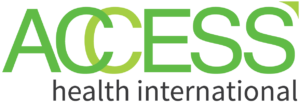
| ACCESS Health hosted the third session in the virtual Fintech for Health Special Interest Group (SIG) series on November 24, 2021. The Fintech for Health team in India continues to engage fintech and healthtech players to share knowledge, dialogue with each other, and catalyze the creation of new partnerships and models to support health financing for low- and moderate-income populations. ACCESS Health, with support from MetLife Foundation, created the Fintech for Health platform for innovative solutions that enable low- to moderate-income people in Southeast Asia to pay for and access high quality care using digital financial services and a financial inclusion approach.
Thirty representatives from leading health tech, fintech, e-commerce, payment banks, and insurance companies participated in the third session. The objective of the third session was to provide the SIG platform to a few participants to share their model and lessons from their journey. During the discussion, participants touched upon two of the many financing solutions applicable to healthcare: mutual health insurance and eRUPI vouchers for health. Presentations were given by representatives from Uplift Mutual, Opportunity International, and National Health Authority. Uplift Mutual supported by Opportunity International presented their case on digital health mutual and the National Health Authority representative presented the eRUPI voucher and its relevance to Pradhan Mantri Jan Aarogya Yojana (PMJAY). Mutual Health Insurance: By the communities and for the communities Uplift Mutual shared their motivation and journey to where they are today by creating a health mutual solution which has proven to be both profitable and highly impactful in terms of health outcomes. Uplift has built a community centric mutual model of health insurance that designs and develops insurance products that people demand to mitigate health impoverishment. 500,000 people in low-income communities are covered with health mutual insurance across urban and rural areas. Using an eco-system approach, Uplift Mutual has learnt over the years, that to build sustainable, efficient, and effective healthcare financing mechanism for the poor, it’s essential that poor households are both customers and managers of such a scheme. The mutual model of Uplift provides a member designed and managed healthcare financing model where on becoming a member; households not only share their health financing risks, participate in the governance of the scheme at different points, but also share prevention, guidance, and a multi layered network of healthcare providers. Unlike most healthcare financing arrangements that have a top to down approach, in the mutual model the contribution to the scheme, which events will be financed, and what will not be is decided by members. In a highly unregulated and opaque healthcare sector in terms of pricing and quality like ours, it makes sense to invest in removing asymmetries of information. The difference in health mutual and commercial insurance is that; today’s regulatory structure doesn’t permit the health insurance to engage in active risk management services except via working with affinity partners. Though the central tenet that users need to be engaged on staying healthy. The discussion highlighted a major critique of demand led models of healthcare financing: many initiatives have been managed informally and poorly, perhaps leading to their failure or inability to enter other markets. However, data driven, digitally designed and delivered products can turn out to be useful. UTTAM is a mobile app by Uplift, now available in 3 languages which enabled the first scalable digital mutual that can process claims in 2 – 48 hours. As mutual insurance has customized products and communities around the product, there were suggestions from the group on how health mutual insurance models can be packaged as group health insurance for one village or a group of villages and how it would be important to work with the regulatory model to bring mutual health insurance as one of the mainstream financial inclusion models. eRUPI Voucher: A Cashless, Purpose, and Person driven, transparent Digital Payment Solution eRUPI was launched in August 2021. This is a digital solution for cashless and contactless payment for services sponsored by government and private organizations to optimize processes for minimum touch points, for targeted and transparent delivery of services and to reduce administrative cost. It is a purpose- and person-driven digital solution for digital payment platforms. eRUPI is launched to provide essential services such as cooking gas (LPG), ration, medical treatment, scholarships, pension, or wage disbursal, especially in rural areas now starting with COVID-19 vaccinations. Now, NHA is exploring the potential of eRUPI to be used by PMJAY for diagnostics and medication post procedure. It is essentially to provide more transparent options to the beneficiaries to avail the benefit package offered under PMJAY by unbundling the services for diagnostics and medicines. Many banks participating in implementing the eRUPI are private and they will have an avenue to plug in and play a part. During the SIG session, participants held discussions around several use case scenarios where eRUPI can be used such as: for prenatal care, natural disaster relief, incentives for preventive and promotive care, food supplies to children at the anganvadi centers, etc. One potential challenge is in implementing the e-voucher where cash payments were once dispersed, presenting the possibility of punitive action if eRUPI is not used. There were other possible ways discussed where eRUPI could be used to issue short-term interest-free financing to cover co-pay or for the cost not covered in the treatment and interest can be charged after some moratorium period of 15-30 days. In summary, the Special Interest Group third session dug deeper into the potential use of Fintech for Health models and how these can expand to unreached populations. Overall, the session highlighted:
Have more to add to the conversation? Read more about the Fintech for Health program here. If you have questions, or would like to work with us, please email us here. Please see blog post on the next Special Interest Group Series Launched in India here Authors: Sireesha Perabathina, Senior Consultant at ACCESS Health International For more information contact [email protected] |


